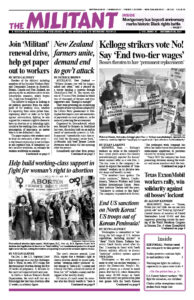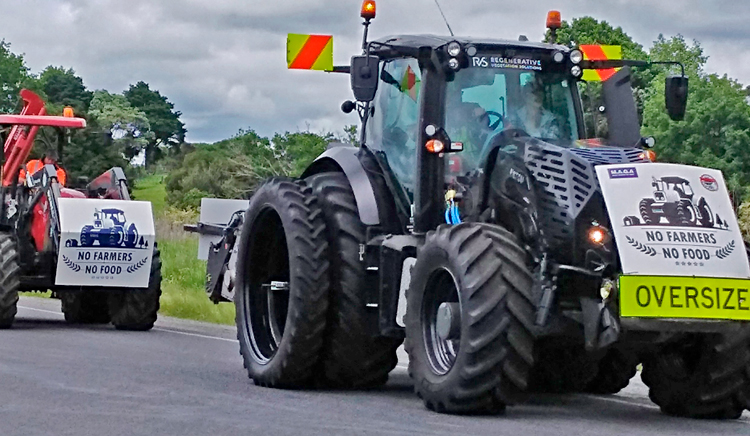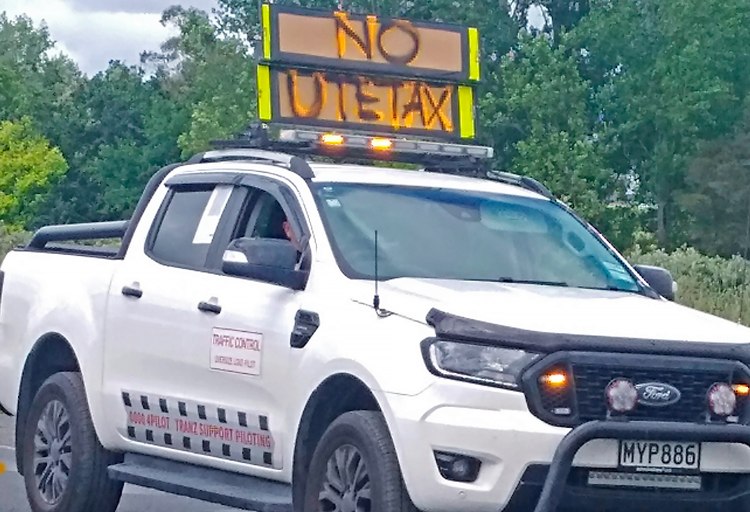AUCKLAND, New Zealand — “Without farmers you will be hungry, naked and sober,” read a placard on a tractor heading a caravan through Christchurch Nov. 21. The convoy was one of 70 across New Zealand in which tens of thousands of farmers and their supporters said, “Enough is enough!”
They were protesting an accelerating onslaught of new regulations adopted by the Labour Party government in Wellington that impose costs and mountains of paperwork on rural producers, in the name of protecting the environment.
Organized by Groundswell, which was formed by farmers in Southland last year, the action built on an earlier round of nationwide protests in July. It opposed “unworkable rules that really hold the [farming] sector back,” co-founder and beef farmer Laurie Patterson told Radio NZ the morning after the protest.
Groundswell and other farm groups are channeling long built-up frustration among rural communities at policies imposed on farmers by the government — policies that haven’t met with serious opposition from Federated Farmers or other traditional capitalist agricultural organizations. Farmers are particularly angry at being framed up as villains in the degradation of the environment.
The farmers explain that they are on the frontlines of defending the land and waters, and their livelihoods depend on it.
Farming plays a central part in the capitalist economy here. Together with forestry, agricultural products make up more than half of all exports. Protesters gathered on the outskirts of Pukekohe in South Auckland — a major agricultural area — before driving into Auckland city center. Dairy farmer Ian Chitty told the Militant about the impact the government regulations are having. “I’m in the final stage of putting in irrigation on our farm,” he said, with all the permits approved and costly bores drilled. Then “last September new regulations came in that meant we had to spend another $35,000 [US$23,800] to get a consultant’s report, and will have to pay more for it to be peer-reviewed.”
“We spend as much time on compliance as on trying to make a living,” said John Burchill, who runs a company installing tanks, as he joined a 17-horse mounted protest in Pukekohe township.
Many protesting farmers said they object to government proposals to tax the purchase of “utes,” as the small diesel- and gas-driven pickup trucks they use are called, to subsidize electric car sales.
Other oppressive rules and red tape that Groundswell’s leaders describe include requirements for farmers to develop extensive environmental plans for their farms; expensive and time-consuming consent requirements for farm development; and rigid templates for protecting waterways and so-called Significant Natural Areas. These are large tracts of land designated by the government that farmers must fence off and take out of production.
“There’s been no ‘give’ to farmers that were actually looking after wetlands,” Marilyn Dalzell, who with her husband runs a sheep, beef and deer farm in Canterbury’s Lees Valley, told Radio NZ. “All of the cost has gone onto the landowners.” And one-fifth of their land has been designated a Significant Natural Area, she said.
Groundswell also opposes a Labour government scheme to take the provision of waste water, sewage, and other water services out of the hands of elected local councils. Farmers fear this will transfer resources and control away from the country and to the city.
‘Carbon farming’
Another central government scam is what farmers call “carbon farming,” part of the international trade in so-called carbon credits that let governments and bosses continue to pollute in exchange for certain investments. Landowners are being paid to convert land to forestry, Manawatu beef farmer Russell Johnson, who took part in the Whanganui protest, told the Militant Nov. 26.
A carbon farmer “has no intention of harvesting the trees,” he said. Instead, he sells government-issued “carbon credits.” This can be four times more profitable than sheep and beef farming on the same land. That makes land unaffordable for “would-be farmers.”
Many people turned out along roads and in towns to applaud the caravans. But not everybody was cheered by the large protest. On the eve of the event, Labour government Minister Stuart Nash smeared Groundswell as reactionary, “a mixture of racism, anti-vax, etc.,” a charge firmly rejected by Groundswell co-founder Bryce McKenzie.
In Wellington, supporters of “Extinction Rebellion,” an anti-working-class outfit that demands working people sacrifice to prevent imminent climate change catastrophe, tried to block the protesters. The group says “diets would have to change by drastically cutting back on meat and dairy.”
Rising prices worldwide are starting to have a significant impact on farmers. Statistics New Zealand reports farm input prices have risen by 7% in the last year. “Many, especially younger dairy farmers, are deeply in debt and fear the cost of the new regulatory regime,” Johnson told the Militant. “Every farmer I know on my road has a wife or a husband working in town.”
The protest concluded with the national radio broadcast of a statement by Groundswell promising another mass mobilization in February if the government continues to brush off farmers’ concerns.
Annalucia Vermunt contributed to this article.



